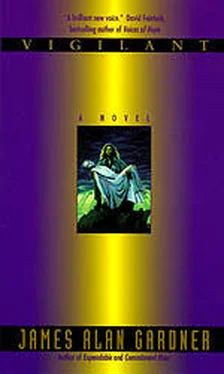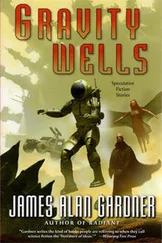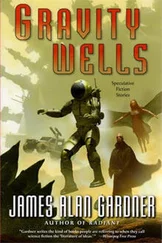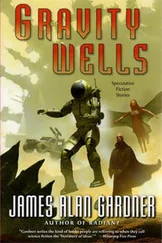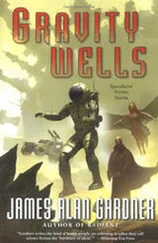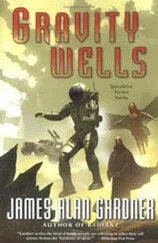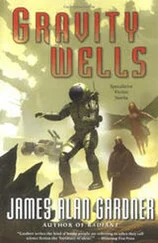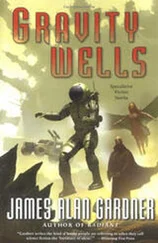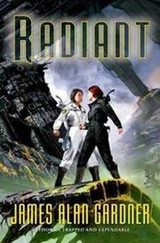It was late summer in Sallysweet River when we first heard tell of the disease. My father, Dr. Henry Smallwood, was the town M.D., always reading the medical newsfeeds to me and giving his on-the-spot opinion. A session with Dads might go like this: "Well then, Faye-girl, here’s some offworld laze-about who’s come to Demoth for a study of our poisonous animals — lizards and eels and what-all. Can you imagine? He wants to protect us all from snakebite or some fool thing… as if there’s a single creature on the planet that wants to bite us. Complete waste of time!"
(Which was and wasn’t true. Neither Ooloms nor humans were native to Demoth — Homo saps had only been around twenty-five years, and Ooloms about nine hundred — so to the local animal population, we smelled disgustingly alien. Nothing in the woods would ever try to nibble us for food… but they’d be fast enough to give us the chomp if we stepped on their tails or threatened their young. I’d never say that to Dads, though; before the plague sent us all stress-crazy, I was his own little girl, and so swoony fond, I never questioned him. When I felt like a fight, I picked one with my mother.)
So. One trickly hot evening, Dads looked up from the newsfeed, and said, "Listen to this, my Faye — they’re reporting a rash of complaints from Ooloms all over the world. Teeny numbnesses: a single finger going limp, or an eyelid, or one side of the tongue. Investigators are expressing concern." Dads snorted. "Sure to be psychosomatic," he told me. "A grand lot of Ooloms have worked themselves into a tizzy about some idle nothing, and now they’re having demure little hysterical breakdowns."
I nodded, trusting that Dads knew what he was talking about.
But.
It got worse. More victims. In every last town on the planet. Symptoms slowly spreading. A patient who couldn’t move her thumb today might lose all feeling in her little toe tomorrow: one muscle after another shutting down, turning to strengthless putty. It usually started at the extremities and worked gradually in, but there was one man who didn’t show a single symptom till all the muscles of his heart, slump, went slack. The night they reported his case on the news, the exodus began.
Ooloms and all other Divian subspecies have an instinct to isolate themselves when they’re sick. "Oooo," as my father put it angrily, "we’re feeling plumb poorly, better separate ourselves from the herd so we don’t infect others. The cack-headed idjits."
Dads hated that communal instinct. Because of it, infected Ooloms didn’t stay in cities or towns where they’d be close to medical facilities; they headed for the woods, the wilderness, to be on their own. Their species had no trouble living rough out there — they’d been specifically engineered to thrive on Demoth’s native greenery. Leaves and bark pulled from trees, seedpods hanging by the hundreds all year round… the Ooloms could eat, they could glide, they could wait, as the paralysis crept stealthily through their bodies.
They stayed out there, isolated and degenerating from disease, as summer surrendered to wistful fall. Then they began drifting back, when their muscles had frozen to the point that even such grand hunter-gatherers could no longer fend for themselves.
In my dreams I still see them floating in the night: paralyzed bodies black against the stars, gliding over Sallysweet River like kites cut free of their strings. They waited till they were inches near helpless… barely able to control their direction of flight. The ones we found often had branches lashed to their arms or legs with cord-vine, to give themselves a more rigid flying structure after major muscles failed. Most tied their mouths closed too; otherwise, their jaws fell open, and they swallowed insects during flight.
So the Ooloms surrendered in the end… the ones who didn’t leave it too late. They gave themselves up to humans and let us fight the disease on their behalf. In the shieldlands of Great St. Caspian, that meant the Ooloms headed for Sallysweet River.
When the last shift at Rustico Nickel left work at dawn, the miners would go around town with wooden carts, gathering the bodies that had landed overnight — on roofs, across the Bullet tracks, spread-eagled over the hoods of ore-carriers… wherever the Ooloms’ haphazard flight took them. From there, the body carts trundled along dirt tracks and wood-slat sidewalks till they reached our backyard — a crude field hospital slung together by my father under yellowed-canvas tenting. The Big Top we called it. Or the Circus.
Every human with time to spare helped out under the Big Top: feeding Ooloms who couldn’t feed themselves, or fiddling with catheters, enemas and what-all, for those who’d lost the muscles to keep themselves clean. Sometimes it seemed the whole town was there. My best friend Lynn, Lynn Jones, liked to say, "Everyone’s run off to join the Circus." The schools closed for the duration of the epidemic, so all my friends lent a hand — some working long hours, others coming in skittish for twenty minutes, then disappearing when the stink and suffering became too much to bear.
I could stand the stench; it was the death that squeezed in on me. Our patients’ hearts turning to motionless meat. Diaphragms going slack. Digestive systems no longer pushing food through the intestines, and people rotting from the inside out. Eight weeks after Dads read me that first medical notice, Ooloms started to die in the Circus… and they died and they died and they died.
In those days, I slept with my habitat dome set one-way transparent so I could see outside. Roof and walls were wholly invisible, and I’d moved my room far apart from other bubble-domes in our compound, so their lights scarcely reached me. Bed at night was like lying in open air, vulnerable to storms and stars.
My mother (who grew up mainstream and oh-so-proper on New Earth) thought only sluts slept clear. She couldn’t stop making remarks about her "exhibitionist" daughter; she was fair frantic-sure I pranced naked around my room, pretending people could peer in as easily as I could peer out.
That they could see me. That I wanted them to see.
Just my mother’s feverish imagination. The death-filled weeks of the plague had sent her spiraling into shrill neurosis, where she believed everything I did had some perverse sexual subtext. Truth was, I kept my dome one-way clear so I could tell if an Oolom crash-landed nearby. I hated the thought of a paralyzed body caught in the honey bushes outside my habitat. Not that I was stirred by concern for some poor person suffering… I just got the cold icks, worrying there might be a limp, corpselike thing lying unseen on the other side of my wall.
One morning, it happened: a gray drizzly dawn, with the rain beading and runneling down the dome, making a soft patter that keeps you in a fuzz between waking and sleep. Lovely. Dreamy. Then something slapped against the clear roof of my room.
The sound barely penetrated my doze. Gradually I became aware the timbre of the rain had changed, now spittering off wet-washed skin rather than the dome’s invisible structure field. I opened my eyes…
…and found myself staring up at an Oolom woman, plastered against the dome like a drenched sheet on glass. Her face was spread wide as if she were screaming.
I almost screamed myself. Not fear, just the jolt of being startled — the sudden sight of her, splashed five meters above me. Heaven knows, I’d seen enough Ooloms in the same condition: the drooping jaw, the eyes wide-open because the eyelid muscles could no longer blink. (All Divian species blink from the bottom lid up; the slackness of paralysis made Oolom eyes sag open under gravity’s pull.)
For several seconds, I didn’t move. Instinct — freeze, someone’s watching. But the woman overhead couldn’t see me through the dome; from the outside, the field was opaque navy blue, a repressed, severe shade my mother decreed mandatory to prevent the neighbors thinking I was odd.
Читать дальше
